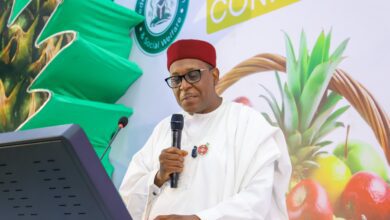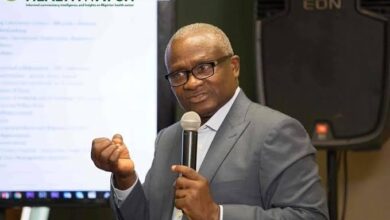Covid-19: Nigeria Receives $9m Grant From Canadian Govt To Scale up Vaccination

The Canadian Government through its Global Initiative for Vaccine Equity (CanGIVE) has given Nigeria a grant worth $9 million Canadian Dollars to scale up Covid-19 vaccine service delivery, strengthen her health system, and improve routine immunisations.
Speaking at the Launch of the 2-year grant in Abuja on July 19, 2023, the Canadian High Commissioner, Jamie Christoff mentioned that, Nigeria was receiving the greatest share of its CanGIVE project.
Christoff said, “while COVID-19 is no longer a global emergency, it is still important to reinforce public health systems as part of an inclusive and sustainable recovery. We must intentionally link up these efforts with routine immunization and other services.
“This can help, for example, to reach children who missed routine vaccinations over the pandemic. We know that ultimately, it takes a health
system to turn a vaccine into vaccination.
“This is why, in 2022, Canada launched CanGIVE — a global initiative of $317 million Canadian dollars to respond to country priorities for Covid-19 and build on Canada’s long-standing global commitment to support health systems.
“Under CanGIVE, the WHO project will be implemented in 7 countries, with Nigeria receiving the greatest share of $9 million Canadian Dollars.
“I wish to commend Nigeria for advancing its plan to introduce HPV vaccination into the national routine immunization schedule this year. With the collaboration of the WHO and other partners, the scale-up of this vaccine will be a lifesaver for millions of girls at risk of cervical cancer in Nigeria”.
On his part, World Health Organisation (WHO), Country Representative Office in Nigeria, Dr. Walter Kazadi Mulombo
informed that, the Canada Global Initiative focuses on community engagement, within the context of addressing inequities in service delivery and disparities in gender at sub-national geographical locations.
Mulombo explained that, “the grant will enable the WHO Nigeria country office to provide technical support to strengthen health systems, especially for data management and surveillance linked to the Transforming African Surveillance Systems (TASS) Flagship initiative, increase COVID-19 vaccine demand generation and uptake in an integrated mode with routine immunization and other PHC services”.
He said, several strategies including SCALES 3.0, and integration of COVID-19 into routine immunization, had been employed to deliver the vaccine to the target population.
However, there was still more work to be done as 14 states were performing less than 50 percent vaccination coverage of their target population, and the fact that there were still vulnerable populations that are not sufficiently covered.
The Country Representative maintained that, “the WHO Director General’s declaration that COVID-19 is no longer a Public Health Emergency of International Concerns (PHEIC) marks a turning point in the pandemic. The declaration does not mean COVID-19 is over as a global/national health threat.
“Though considerable achievements have been made, we are still at risk of the infection as cases are still being reported in a number of countries,
“Together with partners and the Federal Government of Nigeria, we should dedicate sustained attention and resources to preparedness and resilience to counter future threats.
He stated that, the CanGIVE Grant came at the right time to help improve coverage and uptake of the vaccine among the priority populations in line with the current WHO SAGE roadmap on uses of COVID-19 vaccines.
Consequently, “the grant will be implemented in the 15 lowest performing states of Benue, Kogi, Taraba, Katsina, Kebbi, Anambra, Ebonyi, Akwa Ibom, Bayelsa, Delta, Edo, Rivers, Lagos, Ogun, and Ondo.
“It will help to mainstream and integrate gender-responsive, equity-based and human rights-focused interventions that promote ‘leaving no one behind’ agenda in the country”, Mulombo informed.
According to the Executive Director of the National Primary Healthcare Development Agency (NPHCDA), Dr. Faisal Shuaib, the COVID-19 vaccination program was launched in Nigeria on March 5, 2021, “and with the support of the federal government, state governments, and all our partners, we have reached over 75% of the target population of individuals aged 18 and above with at least one dose of the COVID-19 vaccine.
“The program has been implemented in phases, ensuring that eligible populations are reached and no one is left behind. Nigeria was among the first countries to establish an electronic registry and integrate COVID-19 vaccination with other primary healthcare services. Our “One Country, One Team, One Plan, One Budget” approach reflects our commitment to integrating lessons learned during and after the pandemic into our healthcare system”.
He said, while significant progress had been made, there was still work to do as Several states have primary series coverage below 70%, and booster doses account for just over 20% of vaccinations.
Therefore, the grant targets states with lower performance and aims to reach high-priority populations.
Speaking further, the NPHCDA Boss explained that, the grant to be implemented through the World Health Organisation (WHO), will also contribute to strengthening the health system, addressing service delivery inequities and gender disparities at the sub-national level.






